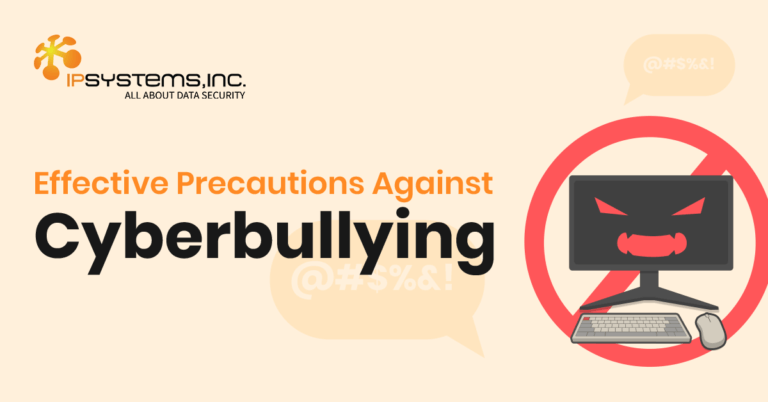
Innovating your Business with Green Data Centers
Blog: Innovating your Business with Green Data Centers Data centers are centralized facilities equipped with essential hardware like servers, storage devices, and networking equipment.

Knowledgeable IT leaders can relate first-hand to the importance of role-based cybersecurity training. They can testify that it’s one of the most pivotal elements of their data privacy and cybersecurity efforts.
You'll want to know what the fuss is about role-based cybersecurity training. First, it's not fussing without substance. Hackers rely heavily on social engineering tactics to increase their chances of succeeding in an attack. If there was one thing that remains critical to cybersecurity and data privacy, it’s the human element.
Security awareness training is essential in every type of organization. However, it’s a different matter to ascertain that employees are doing what they should to prevent, recognize, and respond to potential security threats.
It’s equally essential to consider whether they have adequate knowledge to fulfil specific compliance requirements. Many companies are not confident about the security awareness of staff. They believe workers need better training, even when they work in software or IT departments. The implication is that while security training is vital, companies need to do more to make it effective.
IT or cybersecurity training needs to be a proper fit for each organization. Some security threats have an organization-wide impact, while others are specific to departments. Top security training providers recommend strong security training that addresses unique role-aligned threats in organizations.
If cybersecurity training is right, then it is relevant to all departments, and there is considerable adoption. It will also take into account the unique threats that specific roles face in a company.
The IT or security department of your organization will primarily bear the burden of defending everyone from cybercriminals. We can say this because everyone expects IT teams to manage and protect the company’s infrastructure. The team needs to know about the latest threats. They also need ample practice on the most efficient ways to respond to these threats within the organization’s context.
It’s tempting to believe or suggest that role-based training stops with IT. But the bad guys make sure not to raise any hairs by poking IT. They'll instead focus on less-knowledgeable end-users to carry out their schemes.
Depending on the goal, the attacker will target specific roles or departments. For obvious reasons, finance executives are often crucial targets. Human Resources departments are also attractive to hackers because they have access to confidential employee and organizational data.
Corporate leadership contributes significantly to shaping a company's security outlook by being forward about the security program.
Role-based training tailors cybersecurity training to the job role of each employee. You essentially deliver the security training a person needs without affecting their productivity. But what are the benefits of role-based cybersecurity training?
Traditional training providers are often not as affordable. Then again, their material is usually too much in many security training scenarios. Some managers purchase security training modules and apply them to departments using guesswork. You can expect that much of what a worker will learn will not be relevant and will only end up as time lost.
Role-based training is different in that it saves both time and money by eliminating the guesswork from selecting relevant staff training. With role-based training, it is generally easier for managers to choose appropriate training materials for different job functions.
It is important that any training a company invests in has focus and relevance. Your IT department will not need to learn the entire business process of crafting secure applications, as is the case with traditional training programs. Instead, they'll improve their skills and knowledge concerning their specific function in the business process.
The approach makes plenty of sense because it uses a particular language, maximizing the developers' time. They only learn security-inclined aspects of the platform or language they're using at work.
There are always competing priorities for staff in any organization. Naturally, training starts to take a backseat until it's entirely off the radar.
With role-based training, the content is just the right amount while being relevant and engaging. As long as the trainee can relate to the value such training will have on their ability to do their jobs better, it becomes easier to get them to commit to training.
With greater engagement comes greater confidence in discharging duties and retaining material. It's an essential recipe for functional confidence.
Data breaches have become a significant measure of how companies treat privacy and security risks. Each new data breach report sensitizes the public and raises their expectation of how companies will handle their personal data.
Stakeholders in a business also care about the company’s security reputation. Completing role-based training from various certification programs is one way to show your organization’s commitment to data privacy and securit
Even if there’s still considerable financial outlay for role-based security training, the investment is a no-brainer. It’ll raise productivity, promoting efficiency across teams and in specific roles. As such, less money will go towards incident response, testing, triage, and refactoring.
For security awareness training, a role-based process is beneficial for adoption. It’s a waste of everyone’s time and resources when an individual does not apply their learning. It’s the reason why the training material needs to feature contextual details relative to the department. There’s little point in sharing deep engineering topics with the finance department.
The training also needs to connect with internal or external compliance mandates. This way, you can be sure that everyone will be more attentive to the material.
Role-based training gives maximum returns when the right personnel learns the right skills, lowering the time you spend and yielding maximum impact. The National Institute of Standards and Technology (NIST) provided new guidance on role-based cybersecurity training to help government offices and private enterprises keep information secure. There are training providers, such as Infosec, who'll help you develop the right role-based cybersecurity training program for your needs.



Blog: Innovating your Business with Green Data Centers Data centers are centralized facilities equipped with essential hardware like servers, storage devices, and networking equipment.

Blog: CCTVs: A must-have for every organization Nearly every business and organization, regardless of size, has already implemented CCTV Services within their premises because

Blog: Combating Bullying in Digital Classrooms: Empowering Students for a Safer Learning Environment Bullying is a pervasive issue that inflicts emotional, psychological, and physical